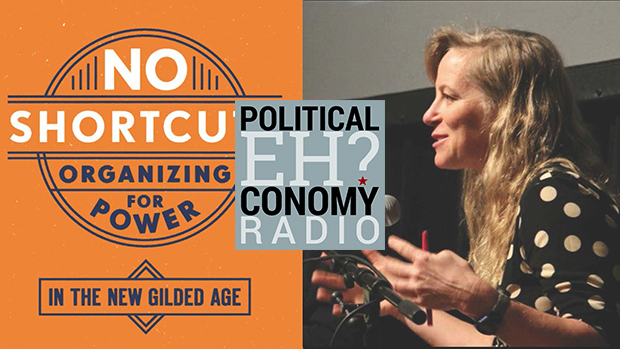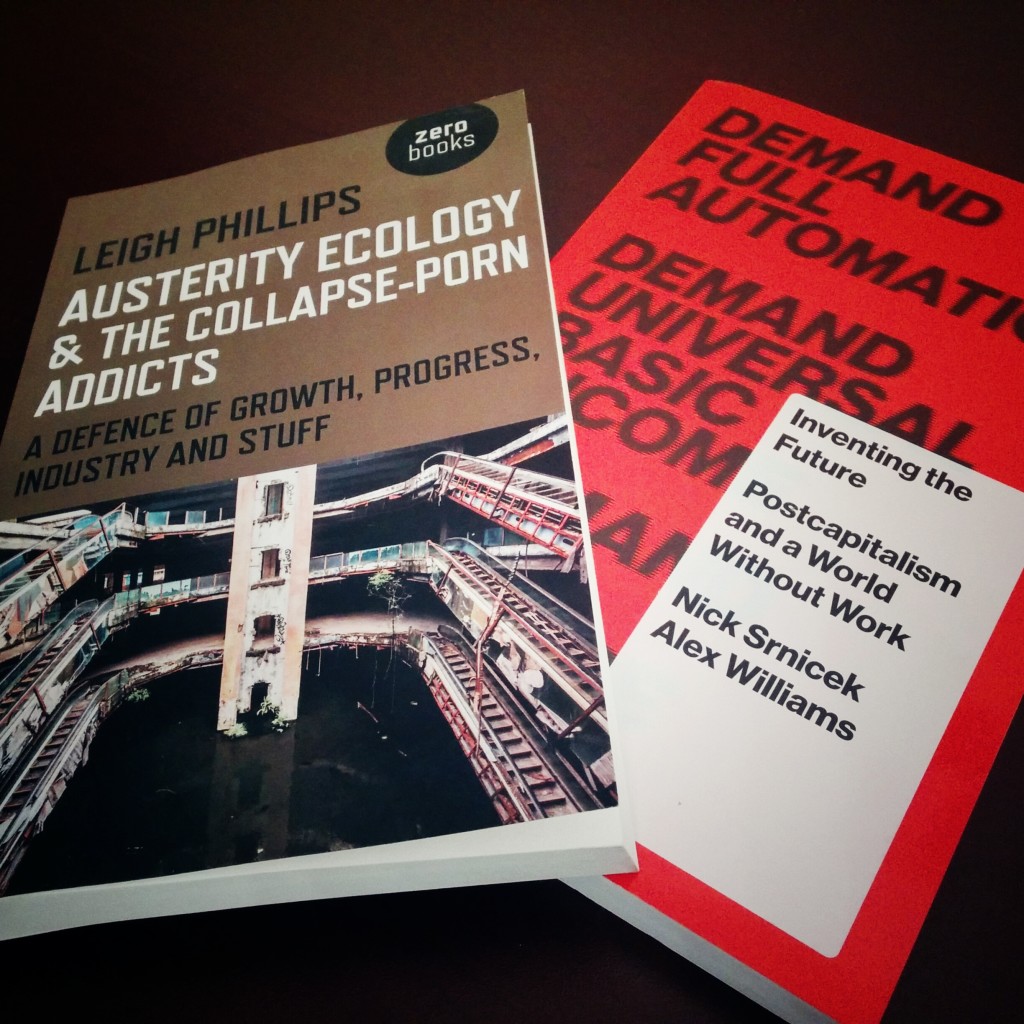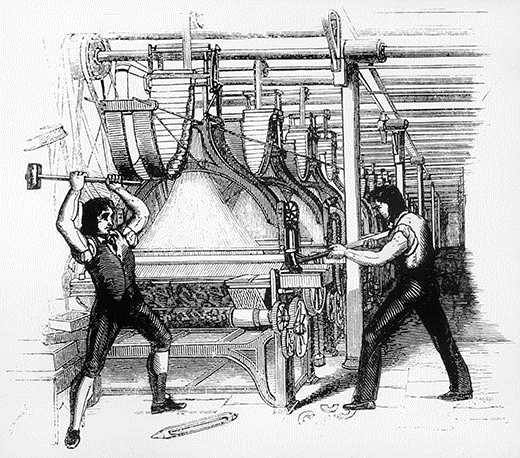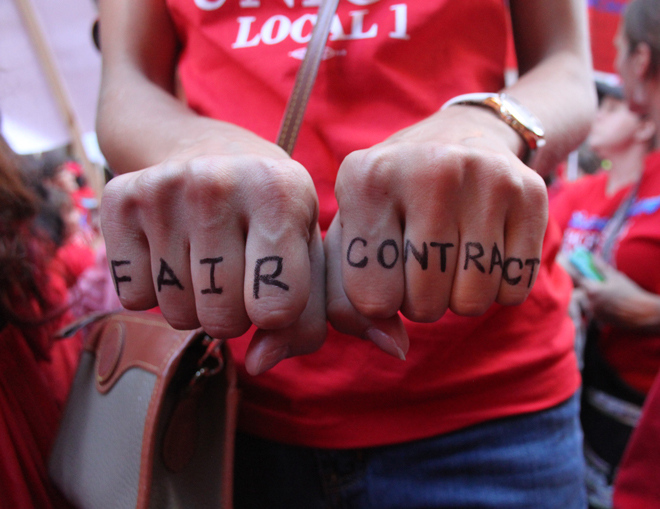My interview with Jane McAlevey has been published at Jacobin. The podcast is available here. Due to a lot of upheaval in my personal life (moving and a new job), there was no podcast last week and this will have to do in lieu. Normal podcasting resumes next week!
Michal Rozworski: You’ve argued that organized labor today doesn’t face an external crisis of circumstances, but a crisis of strategy. Things are bad, but for instance if we look back at the ’30s or earlier, working and living conditions weren’t rosy but we still saw huge mobilizations and stronger movement than we have today. If we have a crisis of strategy, what are we missing? What strategies will work today?
Jane McAlevey: It’s an important question, and I should clarify a little bit. There are external factors; I don’t want to dismiss that. The changing nature of capitalism has made things very difficult, so have trade agreements and globalization. As a self-criticism, I think I sometimes come off completely dismissive of external conditions. I mean to put an emphasis on what we control.
I’m fine to talk about globalization till the cows come home. We know it’s there; we know it’s a problem. The question is, what are we doing about it?
I want to focus on a debate that we can actually change. If we do change our strategy, I think we can win again. The reason I pound so much on internal movement failure is because it’s in the movement’s control. We’re not going to change the direction of global trade tomorrow. What we can do tomorrow is sit up as a movement and decide we’ve got the wrong strategies.
There has been this recognition in the last twenty years or so, in the USA in particular, that we have a crisis. The conditions are very difficult, the employer offensive is very difficult. The problem is that the way the US labor movement took the decision to look for additional leverage was to walk away from workers in the workplace and develop these very sophisticated, heavily staffed campaigns — staffed by, no offense, very educated white men who were given written tests in the application process on reading financial spreadsheets. And this was to hire people to think strategically in the labor movement. To me, this summed it all up. The question wasn’t: do you know how to talk to a worker?
The development of the corporate campaign has been a colossal disaster. It’s an evolution in some ways of taking agency away from workers at every level inside the labor movement. The key strategic pivot we have to make is having a ton of faith in the capacities of ordinary rank-and-file workers and in the ordinary intelligence of workers. We have to prioritize our strategy on teaching, skilling up, and training tens of thousands of workers how to fight.
Organizing isn’t rocket science, but it is a serious skill and a craft. We have to build an army of people in the field who can actually contend with capital on the local level. Not talking to workers and having a strategy that fundamentally avoided workers for several decades is what we need to change and what we can change.




